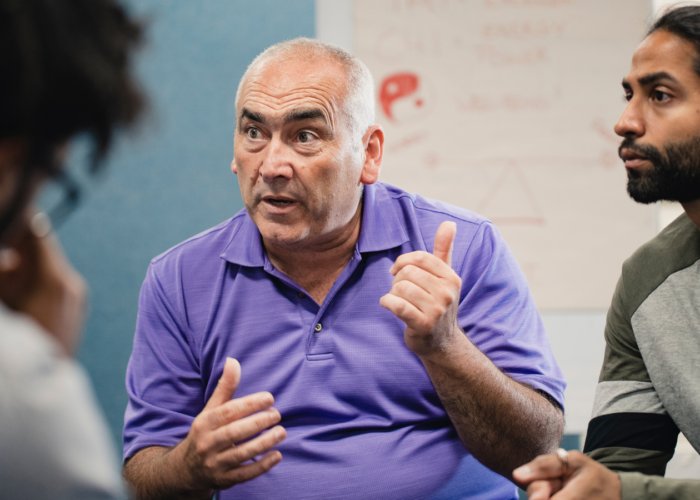 Andi Orlowski, Deputy Director of Business Intelligence, and Dr Ellie Johnston, Health Data Analyst, presented at a conference on blast injury on Friday 12 July. Their talk focused on research into how much extra care is required for victims of a bomb blast. Here, Ellie explains more about the work and the potential impact it could have for victims of war and terrorist bombings.
Andi Orlowski, Deputy Director of Business Intelligence, and Dr Ellie Johnston, Health Data Analyst, presented at a conference on blast injury on Friday 12 July. Their talk focused on research into how much extra care is required for victims of a bomb blast. Here, Ellie explains more about the work and the potential impact it could have for victims of war and terrorist bombings.
At Imperial College London’s Centre for Blast Injury Studies, researchers found that blast is a really complicated injury from the point of wounding, through rehab and beyond hospital discharge. Unlike other trauma it has consequences for pain, scarring and both physiological and psychological wellbeing. Often we think about blast as being about survival, but really it’s about life beyond survival.
Currently the humanitarian aid provided to a country after a war is often for only six to 12 months, which doesn’t cover the amount of time care is needed for these people.
So far we only have very initial data taken from the Hospital Episode Statistics database, but the idea is that this information could be used as evidence for the need to increase the amount of aid provided to countries after a war.
This research could inform the approach to humanitarian aid in conflict zones, but also has implications for the NHS in helping to identify what response is appropriate after a bomb blast and what specialities patients need.
The research hasn’t been commissioned, but it’s an area I feel passionate about and which needs investigation. In Sri Lanka after the war there were only two therapists for 600,000 people; clearly this is inadequate and would in no way meet demand for this support. We hope to provide evidence-based guidance on the type and duration of support that is needed after a blast or war to give people the best chance of a return to normality – both in the UK and overseas.
We’ve been looking at UK data relating to patients who have been in explosions and looking at how long they’ve had need for an increased use of the medical system. We’ve split the data into two groups – patients who were injured in an accidental explosion such as a boiler blowing up, and people who were involved in a targeted explosion where the intent was to harm.
We identified all relevant patients over a three-year period and followed them for five years, tracking their inpatient, outpatient and A&E attendances to look at how their blast injury impacted their general use of the health system. This was compared to a control group matched on co-morbidities to show how much blast injuries increase the burden on the health system.
For accidental blast patients the data showed an increased need over the first year compared to the control group. For people who were intentionally injured, the increased use of the health system continues for much longer and even after five years it’s higher than normal levels. There may be an added psychological burden in cases where the blast was intended to injure compared to accidental explosions.
Dr Emily Mayhew is Imperial College London’s lead on the Paediatric Blast Injury Partnership, which is part of the Centre for Blast Injury Studies network. She is interested in our research because of the difficulty of capturing data in conflict zones. Her work is focused on child victims of blast injuries and her insight is invaluable in understanding the real impact this project could have. Although our data is UK-specific the findings could support the case for increased support in countries affected by war.
Dr Mayhew describes blast as a continuum injury and she believes it needs studying long into the lifetime of the patient so that we can see how it affects them in later life. If research is carried out on the first few days after blast injury then it must continue over the next few years in order to properly account for all the aspects of harm.
We’ve also been in contact with former Director General of the Army Medical Services Major Michael von Bertele for his input and experience into humanitarian responses. He also addressed the international Blast Injury Conference, which gives scientists, engineers and clinicians interested in blast injury research the chance to come together and hear about developments in the field. ICHP’s presence at the conference was a great opportunity for us to connect further with other interested parties and we hope to make strides on how to help bomb blast injury victims get the support they need for the time they need it.
If you’re interested in finding out more about this work or have information to share please contact Dr Ellie Johnston.



